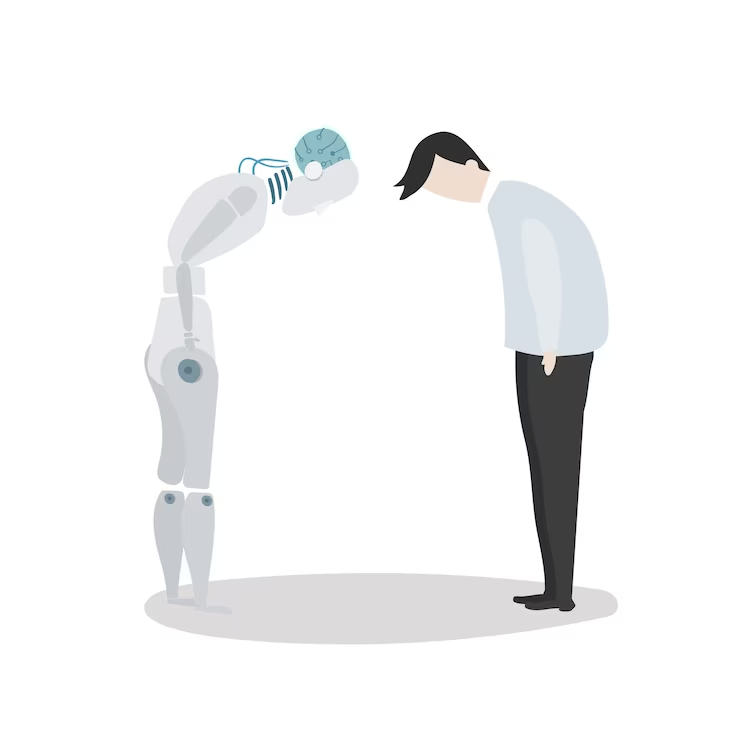

By Frank Travis
May 17, 2023
There has been a significant rise in the use of AI in various businesses and healthcare is one among them. AI in healthcare has sparked conversations and speculations about the possibility of AI replacing doctors in the near future. Although AI has been increasingly used in the medical field can they completely replace human doctors in the foreseeable future? With all the hype and fears surrounding AI let us discuss some of the reasons why AI won’t replace doctors and never will.
AI lacks empathy
Empathetic AI is impossible and unethical. Artificial intelligence lacks empathy and human touch the key to successfully treating patients. Empathy is a critical attribute in healthcare. It is a vital tool to build patient trust and improve health outcomes. Even though you teach AI to be empathetic, it will always fall short of genuine empathy. Only a human doctor is capable of expressing genuine empathy, compassion and humanity for the true medical needs of a person. This allows them to treat the person as a whole, rather than just the disease. They are able to interact, identify and evaluate their needs, effectively communicate and build meaningful relationships with their patients. Hence, it is impossible to imagine healthcare without human empathy.
Doctors have a changing work environment
In an episode in House MD America’s most popular medical drama television series, the team was finding it difficult to find out how a teenage boy was poisoned. They thought it could be drug, food or pesticide poisoning and tried several treatment options, all of which just aggravated the patient’s condition. Finally they found that the boy had phosmet, a pesticide in his jeans that he had bought from a street vendor. It was observed that the boy had absorbed the poison through his skin. No AI can ever make this type of diagnosis possible. Making a diagnosis and setting up a treatment regime necessitates problem-solving and critical thinking which AI never has and will.
Complex digital technology requires trained professionals
More complex digital health solutions will necessitate the expertise of trained medical experts, irrespective of whether it is about robots or AI. Let us take for instance the da Vinci system that is designed to enhance skilled surgeons’ capabilities. It has mechanical wrists that bend and rotate to offer a natural wrist articulation and helps the surgeon precisely perform the operation. However, it requires surgeons to learn and master the surgical technique. Similarly, Watson for oncology uses AI algorithms to recommend cancer treatment recommendations for patients. Based on the treatment options the doctor will choose the one suited for the patient after thoroughly assessing if the algorithm’s suggestions will be helpful or not. No algorithm or robot will be able to handle such complex, multi-layered problems. They may provide the data, but it is ultimately the responsibility of a human doctor to analyze the data and draw conclusions.
There are tasks that AI cannot complete
Doctors perform a lot of tedious, time-consuming and repetitive tasks on a daily basis. A study suggests that administrative tasks consume one sixth of US doctors’ working hours. All of these administrative tasks need to be automated in order to reduce stress and improve patient care. But, there will always be certain tasks that technology cannot do. Although IBM Watson can sift through millions of pages of documents in seconds, only human doctors can provide the nuance-based interaction needed for any given medical problem. For example, the Heimlich maneuver a life-saving technique to save chocking victims cannot be done by technology. Hence, there will always be tasks that need human doctors to complete it more quickly, accurately, and affordably than technology.
It has never been AI vs. doctors but instead AI with doctors
It is important to first stop thinking of technology as opposed to humans. It has never been a case of technology versus humans. Healthcare technologies are indeed improving all aspects of the healthcare system. So it’s not the case of tech vs humans but tech with humans. Hence, the combination of doctor expertise and AI is the best option. The International Symposium on Biomedical Imaging (ISBI) that evaluated new and existing algorithms for automated detection of cancer metastasis reveals something similar to this. It found that by combining the deep learning system’s predictions with the human pathologist’s diagnoses, significantly improved image classification and tumor localization scores. In addition, the human error rate also decreased by 85%. The results demonstrate that human doctors and artificial intelligence are most effective when working together.
The upshot
Medical futurist Bertalan Mesko, MD, Ph.D. says that doctors have nothing to fear about as AI will never ever replace them. He further added that AI will change what it means to be a doctor. Some tasks will go away and others will be added to their daily schedule, but there will never come a situation where an AI will replace a doctor. He justifies his statement by saying that only human doctors can show empathy, think creatively, evaluate and choose treatment options, and perform certain tasks much faster, reliably and relatively cheaper. So, it isn’t a question of tech competing with human doctors, but of tech augmenting doctors. Technology will help make doctors more efficient, less prone to errors, and more seamless. Yes, AI can’t replace doctors, but it can definitely make them better.

Please fill out this form.
We will reach out to you within 24 hours

Frank Travis

Frank Travis

Documentation is an important daily clinical responsibility. In order to optimize patient care, physicians are always on the lookout for new ways to effectively and efficiently document patient visits.
The use of virtual medical scribes has become increasingly popular in the recent years, as medical practices across the country are on the constant lookout for ways to reduce clinical documentation overload, thereby improving overall productivity.
The clerical burden associated with EHR usage is attributed as the number one cause of physician burnout. We also know that physicians spend twice as much time on EHRs and other clerical tasks compared to the time providing patient care.